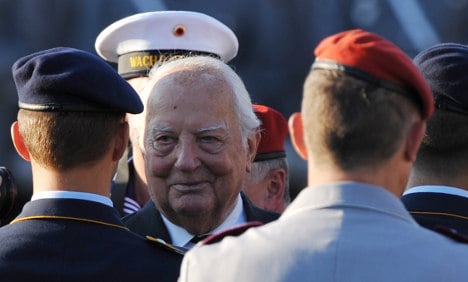Kleist, who was arrested and sent to a concentration camp after the 1944 bid to remove Hitler, died last Friday in Munich, a spokesman for the Munich Security Conference said on Wednesday.
Under the “20th of July” plot, German army officers teamed up with members of the resistance including trade unionists to try to blow up Hitler at Rastenburg, in Eastern Prussia, now part of Poland.
Among the key plotters was Claus Schenk von Stauffenberg – played by US actor Tom Cruise in the 2008 film “Valkyrie” about the failed assassination – who had personally recruited Kleist.
Kleist was 22 at the time and volunteered to wear a suicide vest at a meeting with Hilter. But the plot failed and Hitler survived although he was injured in the blast. Leading members of the plot were arrested shortly afterwards and executed.
Kleist was imprisoned at the Bendlerblock building in Berlin where the plot had been hatched and today is used by the defence ministry, before he was sent to Ravensbrück concentration camp.
After the Second World War, he studied law and economics and went into publishing.
He was also a co-founder of the Munich Security Conference, which annually brings together global defence and foreign policy chiefs.
“We lost a great German, a great security policy maker,” Oliver Rolofs, spokesman for the conference told news agency AFP.
During a 2010 commemoration of the failed plot, Kleist said “we wanted to end the dreadful crimes” of the Nazi regime, which continued for nearly another 10 months after the assassination attempt.
AFP/mry



 Please whitelist us to continue reading.
Please whitelist us to continue reading.
Member comments